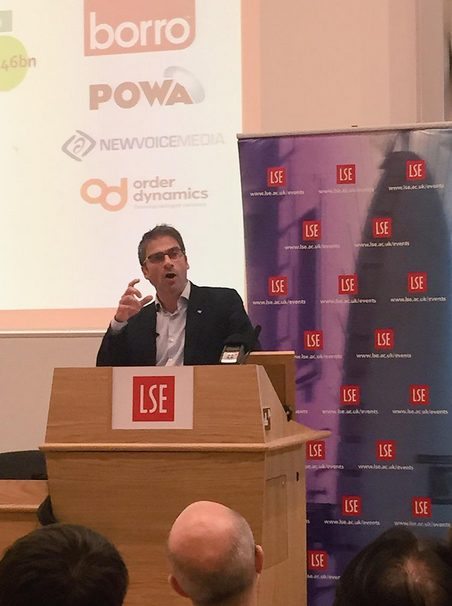Tech City UK CEO Gerard Grech spoke at the London School of Economics and Political Science (LSE) last night as part of their summer public lecture series. In front of a packed Hong Kong Theatre, Gerard introduced the audience to the concept of ‘London as a Platform’ and the possibility of creating a ‘Digital Social Contract’ between city and citizen. Chaired by Dr Max Nathan, the lecture was followed by an expansive Q&A session with the audience. The topics covered included: immigration, the role of LEPs in regional innovation, digital skills and education reform, automation and the casualisation of labour and what the developing world can learn from the Tech City success story.
Developing the concept of London as a platform with it’s own urban digital API, Gerard said:
So what would a city look like, what would London look like, if it were viewed as a platform in the same way as software platforms? London as an idea is not an abstraction. It encompasses physical objects like Buckingham Palace, Hyde Park, black cabs and the tube. But it also exists in your phone, on your laptop and in the urban wisdom you share with others over digital networks. And just like its physical architecture, its digital architecture can be disrupted, reinvented and repurposed.
As the concept was expanded, Gerard introduced the idea of a digital social contract between city and citizen for the first time at the internationally renowned social science institute:
There is huge potential for what I’m calling ‘a digital social contract’ between city and citizen. The mutually accepted and shared understanding of rights, responsibilities and delivery. This digital social contract is premised on the agreement that the city will do more for us in exchange for our active and passive contribution. We need to approach this openly, if we expect our future to be different from our past.
As a result, imagine the following:
What if school classrooms in the city could be used on weekends to deliver educational workshops/cultural events and were available for public use?
What if the city ran competitions for providing services that are deemed too expensive or too complex to deliver – offering a budget as a ‘prize’ for whoever comes up with an innovative way to deliver them for less?
What if local communities could crowd fund ideas for their own local areas which could then compete for match funding from the local council?
What if citizens carried early warning systems so that when air pollution gets to dangerous levels, city planners were notified in real-time.
What if public institutions ran monthly hackathons to get people to propose solutions for its most pressing problems, inviting anyone to show up?
Concluding, Gerard called on the next Mayor of London to fully embrace digital by creating new positions that employ leaders from across the technological spectrum:
From a Chief Digital Officer (CDO) responsible for the strategy, to a head of Data, responsible for generating actionable insights and trends, to a head of Developer Relations, responsible for a team of evangelists, promoting the use of data, to programmers, designers and businesses, and the people who are interested in building applications and services to plug gaps.
The full transcript of the speech and accompanying video will be available soon. For more, check out Storify. We’d like to take this opportunity to thank all those that attended, the LSE for the invitation and Dr Max Nathan for his consummate professionalism in moderating the lecture.



